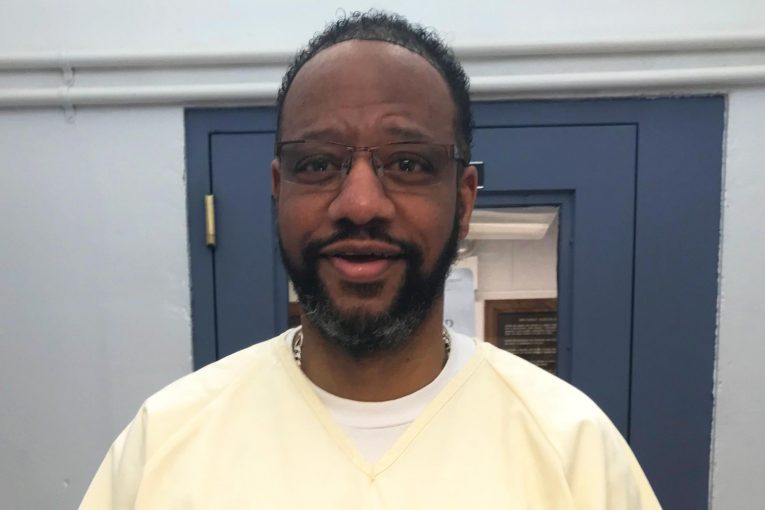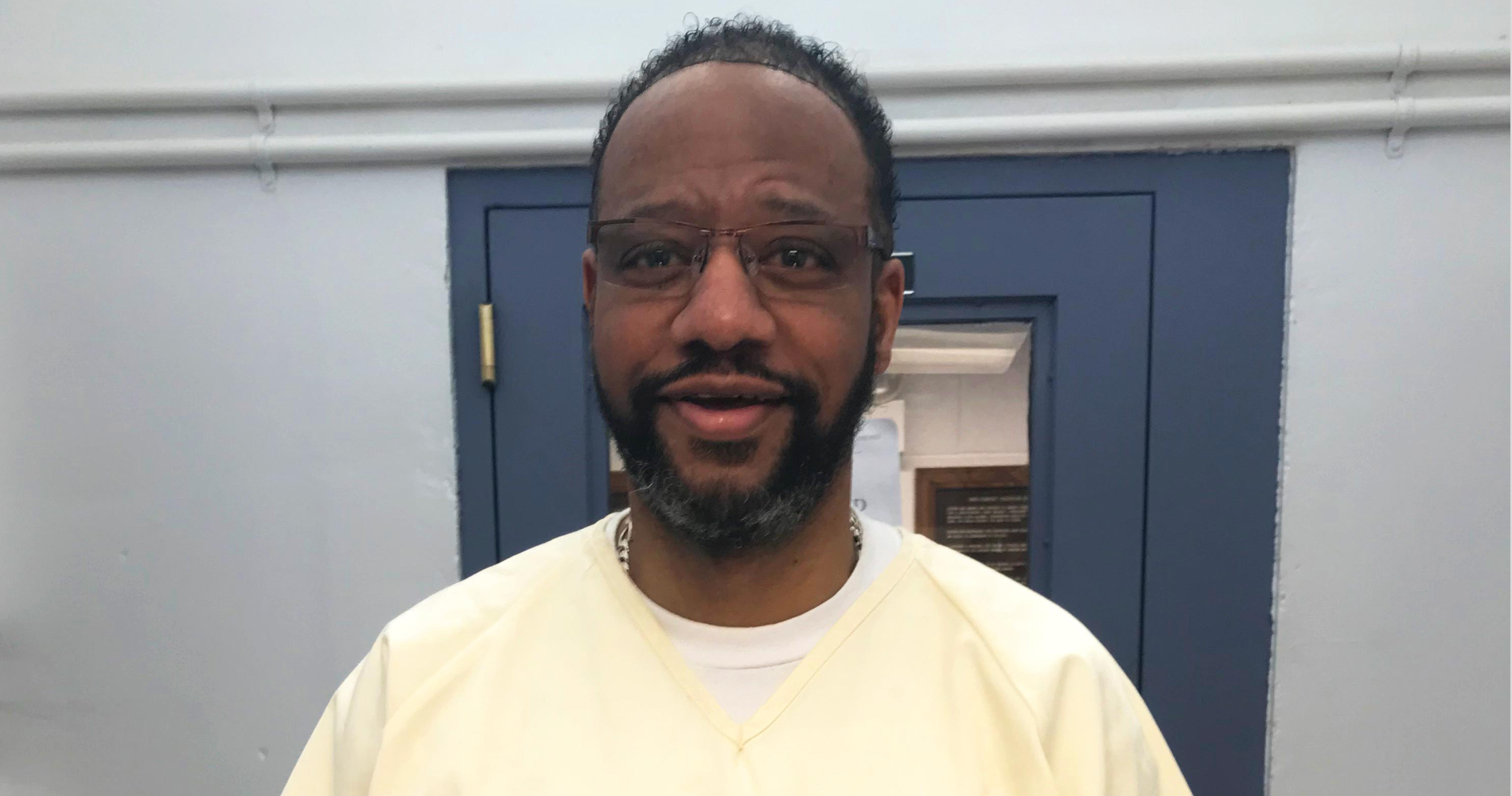
 By Julietta Bisharyan
By Julietta Bisharyan
MEMPHIS – For more than three decades after being sentenced to death, Pervis Payne has maintained his innocence. With his execution date on Dec. 3, 2020, looming, DNA testing could still prove his innocence.
Several groups led by the Ben F. Jones Chapter of the National Bar Association have gathered to call on District Attorney General Amy Weirich, who is opposing the DNA testing of evidence, to join the request to test DNA in Payne’s death penalty case.
“The Ben F. Jones Chapter of the National Bar Association was founded in 1966 to address the unique needs of African American lawyers. However, one of its most important missions is to proactively and visibly advocate causes that protect and advance the rights and privileges of members, their families, and their communities and to promote the rule of law,” said board member and Memphis attorney, Latrena Ingram.
“There is not a more important component of the rule of law than its proper application when being used to kill a human being, which is why we seek justice for Mr. Pervis Payne,” Ingram added.
The legal, faith and community groups involved are the Tennessee Black Caucus of State Legislators, Memphis Chapter of the NAACP, the Memphis Bar Association, 100 Black Men of Memphis, Inc., National Council of Negro Women (Memphis Chapter), Stand for Children Tennessee, Memphis Interfaith Coalition for Action and Hope (MICAH), Church of God in Christ (COGIC) National General Board Member Bishop Brandon Porter, COGIC Bishop Linwood Dillard, Jr. and COGIC Bishop David Hall, Sr., Hope Fellowship Church Pastor Dr. Timothy Jackson, Jr., Carlos Moore, President-elect of the National Chapter of the National Bar Association, and Just City.
During an afternoon in June 1987, Payne—a Black man with an intellectual disability—was waiting for his girlfriend to return to her apartment in Millington, Tennessee. After hearing noises  across the hall, he ran out and discovered that his girlfriend’s neighbor, Charisse Christopher, and her children had been brutally attacked, with stab wounds.
across the hall, he ran out and discovered that his girlfriend’s neighbor, Charisse Christopher, and her children had been brutally attacked, with stab wounds.
Shocked at the bloody scene, Payne tried to help the victims until the police arrived at the scene. Payne was arrested later that day and convicted of murder and sentenced to death the following February.
In the last 33 years, Payne has said that he was only an innocent bystander and never committed the crime. DNA testing, which could be completed in 60 days, may determine the presence of another person’s DNA on the murder weapon or other critical evidence.
On Jul. 22, the Innocence Project joined Nashville attorney Kelley Henry’s team at the Federal Public Defender’s Office in Nashville and the Milbank firm in filing a legal petition for DNA testing of evidence in Payne’s case, which has never been tested before and could help prove his innocence.
Despite this, DA Weirich is opposed to DNA testing in the case. Her argument against DNA testing is based on a 2006 decision that was overruled by the Tennessee Supreme Court in 2011—Rudolph Powers v. State of Tennessee.
Weirich’s office has also previously opposed DNA testing for cases with innocence claims.
In 2006, Sedley Alley was executed by the State of Tennessee after being denied DNA testing of underwear found at the crime scene that was believed to belong to the perpetrator. Last year, the Innocence Project filed a petition for posthumous DNA testing in Sedley’s case, which the District Attorney’s Office opposed. Alley’s daughter, April Alley, continues to seek the truth in his case.
For Payne’s case, the prosecution argued that Payne had taken drugs, looked at a Playboy magazine, and was looking for sex when he approached the victim. It was argued that he attacked her after she rejected him.
Although Christopher’s body was discovered fully clothed, the prosecution argued that she had been sexually assaulted and made repeated references to her “white skin” in front of the jury. At the same time, Payne was painted as a sexually aggressive Black man on drugs looking for a white woman to attack, evoking racial stereotypes.
There is, however, no evidence that Payne had used drugs that day, and he did not have a history of drug use, nor a criminal record.
At the time of his trial, Payne’s disability was not recognized, but doctors have since confirmed through testing that Payne has an intellectual disability, with an IQ of 72. As a result, Payne was unable to assist his attorneys in his defense and was not a strong witness under intense questioning from the prosecutor.
Despite a constitutional ban on executing people with intellectual disabilities, he is still scheduled for execution in December.
“The U.S. Supreme Court recognizes that persons with intellectual disability are at a special risk for wrongful execution,” said Linda Harris, a member of the Ben F. Jones Legal Justice Task Force. “As a former police officer and Assistant United States Attorney, I appreciate the importance of DNA in a circumstantial case where an individual is claiming innocence.”
Payne seeks DNA testing of more than a dozen items of crime scene evidence that have never been subjected to DNA analysis. One of the items, which are fingernail clippings, may be significant, as the prosecution argued at trial that the victim scratched the perpetrator while fighting him off.
Other suspects have not been investigated, including a man that was seen running from the crime scene shortly before Payne discovered the victim in her apartment. Both Payne and another eyewitness also saw this man.
The victim’s ex-husband, who had a history of abusive behavior, including physically, mentally, and emotionally abusing the victim during their marriage, was also excluded as a suspect by investigators.
During the time of the murders, he was serving a sentence for aggravated assault at Fort Pillow State Penitentiary, a minimum security prison. An employee at the prison, however, has since admitted that it was common for incarcerated individuals to leave the prison during the day without repercussions, rendering him a possible perpetrator.
The Ben F. Jones Chapter has also announced its support for a sentencing commutation for Payne, urging the Governor to commute his sentence to life imprisonment.
“Support of commutation of Mr. Payne’s death sentence to life imprisonment is consistent with the mission and purpose of the Ben F. Jones Chapter of the National Bar Association,” Ingram said.
“We seek to promote the rule of law. Mr. Payne’s execution unquestionably violates the United States Constitution because he is intellectually disabled. But the Tennessee Courts are unable to correct this error because of procedural obstacles put in place by the state legislature. The Governor has the power to correct this egregious error and commute Mr. Payne’s sentence to life imprisonment. He should do so. We urge Amy Weirich to join in that request,” he added.
To sign up for our new newsletter – Everyday Injustice – https://tinyurl.com/yyultcf9
